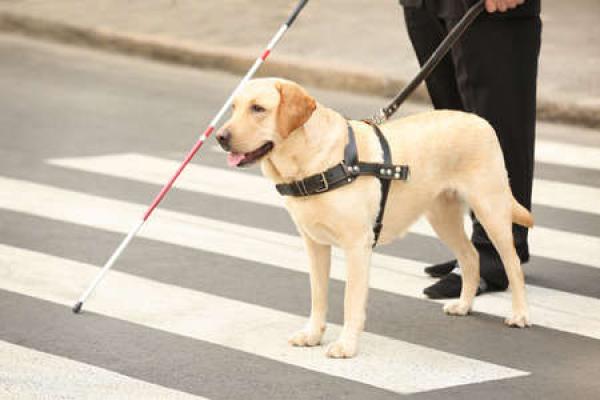The use of service dogs in America has increased over the years as our understanding of their utility evolves and the benefits they provide become clearer. Currently, there are estimated to be more than half a million of these dogs working in the United States, helping those who are suffering from a variety of ailments from the physical to the psychological.
Of course, few of these animals would be able to serve their owners if not for the education they received from expert service dog trainers. Here are a few ways service dogs and their trainers improve the lives of hundreds of thousands of Americans:
Guide Dogs for the Blind and Vision Impaired
Guide dogs have existed for nearly a century and are still the most well-known form of service dog. Their job is fairly straightforward – they assist owners with vision loss in tasks such as walking around areas with physical obstacles, entering and exiting rooms and buildings, crossing streets and getting up and down stairs. Seeing eye dogs are the only type of service dogs that we do not train here at the school. Service dogs are also available for people suffering from hearing loss, alerting them to important sounds such as fire alarms, sirens and the doorbell.
Service Dogs for PTSD and Psychological Disorders
Using service dogs to help treat certain psychological disorders – post traumatic stress disorder most notably – has become increasingly popular in recent years. In the cases of PTSD, these dogs can help reorient their human after a flashback, take them away from stressful environments and prevent people from crowding their owner in public spaces. There is scientific evidence that this helps improve the symptoms of those suffering from PTSD. Additionally, service dogs and their trainers are changing the lives of veterans across the country.
Mobility Service Dogs
Also among the most popular vocations for service dogs is helping those with mobility issues of all kinds. They can help their owner get back up after falls, carry items in a harness attached to their body, steady their owner when needed, help them into or out of seats and can help open and shut doors, among other skills.
All of the improvements service dogs bring to the lives of their owners start with a dedicated professional service dog trainer. While federal law does not require service dogs to be professionally trained, a quick glance in public (for example, stores where “service dogs” bark, defecate, are fearful, etc) shows the need for competent, skillful, professional trainers who know all the ins/outs of training a service dog. If you want to help those who suffer from PTSD, blindness, mobility issues and more, consider becoming a service dog trainer. At Dog Trainer College, we have both in-person and online service dog trainer courses available. Call 800-795-4201 today to get started.


